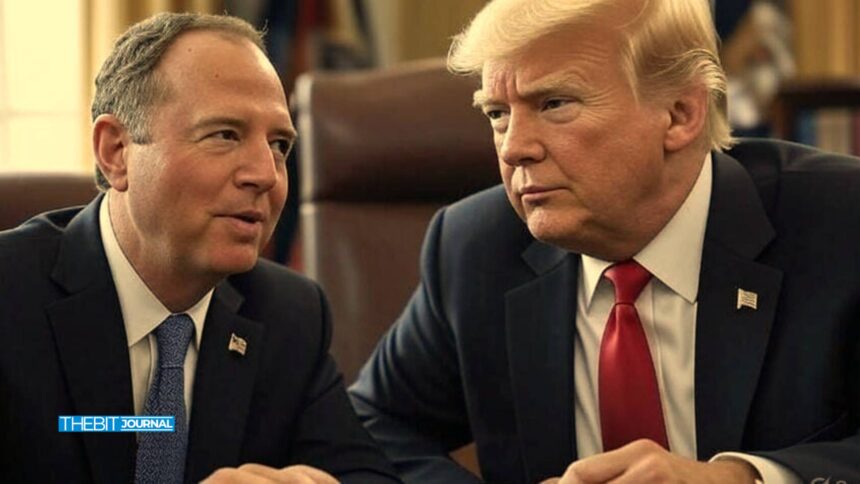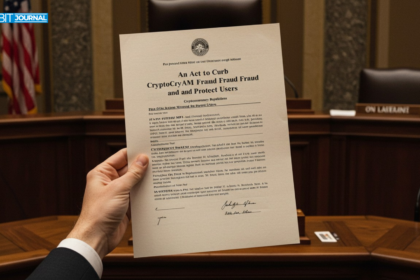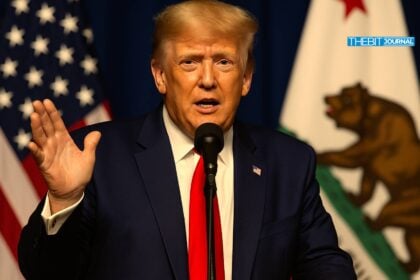U.S. Senator Adam Schiff has introduced the Curbing Officials’ Income and Nondisclosure (COIN) Act, a bill that would bar sitting presidents, vice presidents, and their families from profiting through cryptocurrency ventures while in office.
The law also comes at a time when participation of politicians in digital assets has been significantly increasing and the likes of President Donald Trump are increasingly getting embroiled in the crypto scene, to the concern of many on Capitol Hill.
Schiff Warns of Crypto Conflict Risks
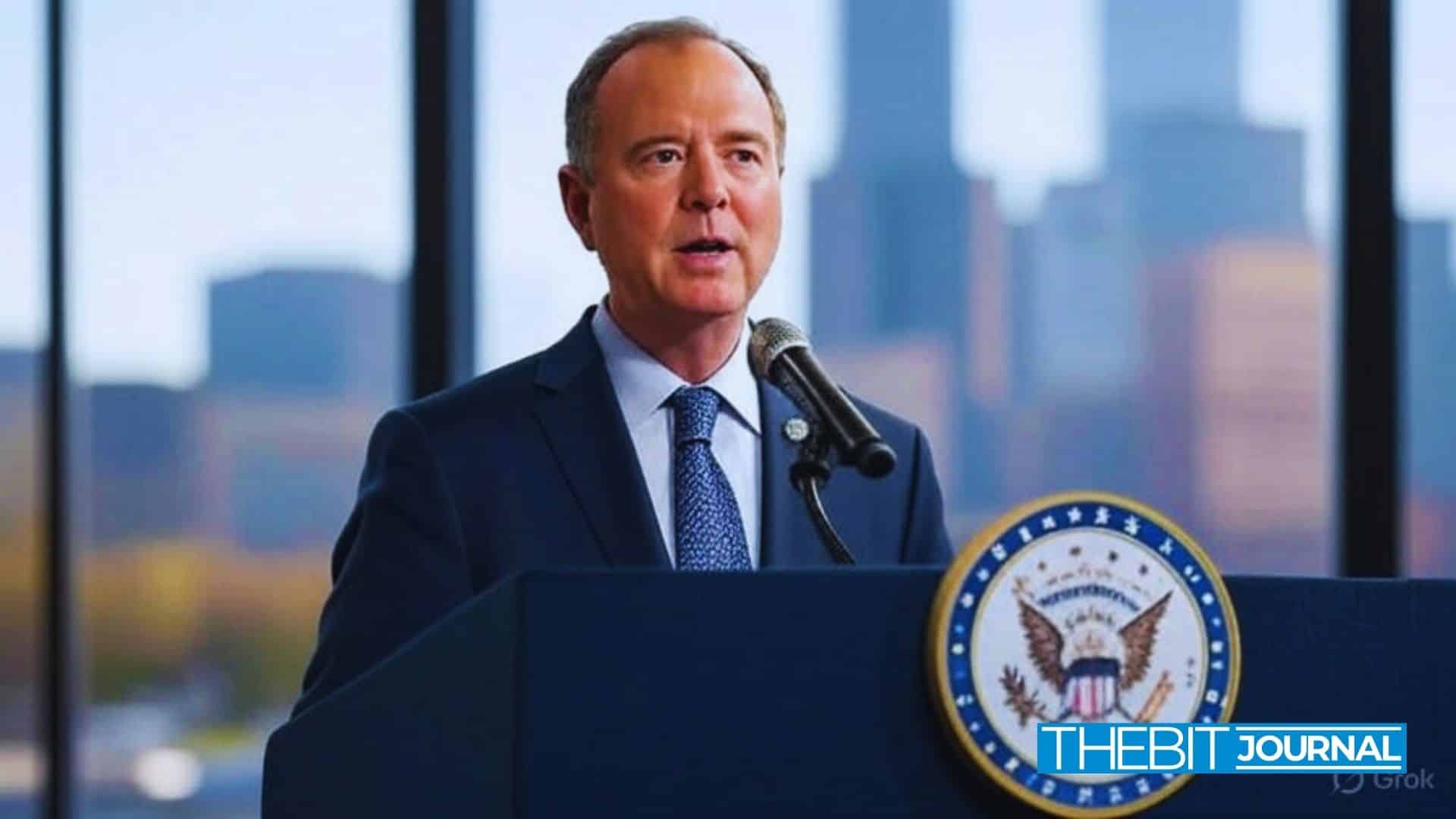
The COIN Act would impose a blanket prohibition on any of the federal top officials such as the president, the vice president, or the members of congress or the seniors in the executive branch issuing endorsing, promoting, or benefiting in any form of digital assets. These are meme coins, NFTs, stable coins and other financial tools based on blockchain.
According to a statement issued by Schiff, he said that the public trust must not be compromised by private crypto interests. Allowing influential officials to gain the benefit of highly speculative digital markets, and at the same time to have influence in this very formulation of the regulatory policy, is asking to be abused and diminishes democratic useful construct.
Donald Trump and other senior administration officials have made a fortune off of crypto schemes.
Today, I'm introducing the COIN Act to put a stop to this corruption in plain sight. pic.twitter.com/8wieNSCPgC
— Adam Schiff (@SenAdamSchiff) June 23, 2025
The bill will also be characterized by the full disclosure of any sales of digital assets valued at above 1000 dollars and excessive fines of up to five years in prisons should people not obey provided a forfeiture of any profits made.
TMTG Secures SEC Approval for Bitcoin Plan
The timing of the law is difficult to overlook. Trump has become one of the figures leading the crypto world since his retirement. Based on his publicly disclosed filings, he made more than 57 million dollars all by himself in 2024 alone on token sales, NFTs, and blockchain investment vehicles.
The various things that he has ventured in reportedly include Bitcoin mining, tokenized real estate, and digital asset ETFs. Spreading more fire to his argument, his media company, Trump Media & Technology Group (TMTG) was just recently approved by the SEC a 2.3 billion Bitcoins treasury program, entrenching itself in the crypto economy.
Schiff Shifts From GENIUS to COIN Act
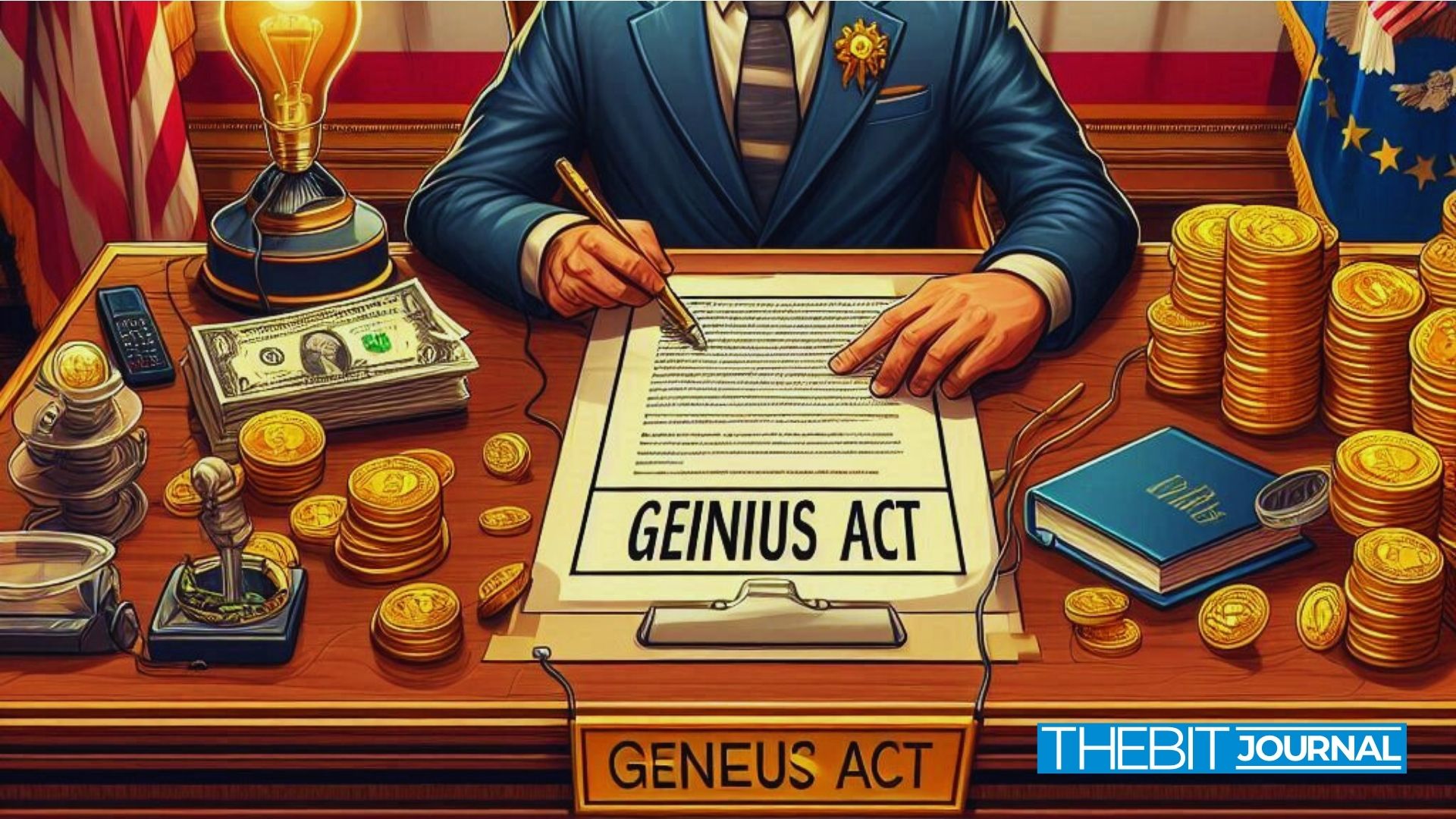
Schiff earlier had supported the GENIUS Act, which, a week ago, legislated stablecoins and offered no crypto restrictions on top officials, and now seems to be bridging that rift with the COIN Act. This is not only concerned with Trump, Schiff said. It is about any official who might use the trust of the people in a personal advantage.
As of now, the bill has had nine Senate Democrats backing it on its road to the Republican-controlled Congress which still has many legislators sanguine about crypto innovation.
Trump, who has increasingly established himself as a supporter of cryptocurrency when democrats remain skeptical about regulation, is hardly relenting. His supporters claim that crypto is a business activity that is not illegal, and banning elected leaders from venturing into the same is a punishment to innovation.
COIN Act Sparks Debate on Digital Leadership
In reaction to the bill, a Trump campaign spokesperson said it is a politically motivated stunt. The success of President Trump in the crypto industry is not the only instance of the fact, that he remains a leader in digital economy of the United States.
The COIN Act could be a historical event in the way the American government manages the rising intertwining between politics and online finances.
As 2025 promises to be a key year in terms of the presidential elections as well as any major move to regulate and control crypto, it is doubtful as to whether Schiff will see his bill passed without raising the eyebrows of many in Washington regarding ethics and transparency in financial innovation.
Conclusion
As crypto and politics collide ahead of the 2025 election, Schiff’s COIN Act stands at a critical crossroads. Regardless of whether it is successful or not, the bill highlights the increasing fears of digital finance, morality, and authority. The result might inform the way future executives approach the fast-changing landscape of cryptocurrency.
Follow us on Twitter and LinkedIn, and join our Telegram channel to be instantly informed about breaking news!
Summary
U.S. Senator Adam Schiff has proposed the COIN Act, which is a bill designed to stop high-ranking government officials, such as the president, vice president, and their families, from profiting from cryptocurrency when in office. The bill, which could be regarded as a direct reaction to Donald Trump receiving crypto investments worth $57 million in 2024
It would prohibit the development, marketing, or sponsorship of digital assets like NFTs, meme coins, and stablecoins. It also requires the disclosure of the sales of cryptos over 1,000 dollars and has imposed severe penalties for non-compliance. The bill, already endorsed by 9 Democrats in the Senate, is unlikely to pass the political headwinds in the Republican-controlled congress before the 2025 elections.
FAQs
1. What is the COIN Act?
A bill by Senator Schiff banning top officials from crypto profits while in office.
2. What does the bill prohibit?
Issuing, promoting, or profiting from crypto assets like NFTs and meme coins.
3. Why was it introduced?
In response to Trump’s $57M crypto earnings and rising ethical concerns.
Glossary of Key Terms
COIN Act
A bill to ban U.S. officials from crypto profits while in office.
NFTs
Unique digital collectibles stored on a blockchain.
Stablecoins
Cryptos tied to stable assets like the U.S. dollar.
Tokenized Assets
Real-world assets are represented digitally on a blockchain.
ETFs
Investment funds that include crypto-based holdings.
GENIUS Act
A stablecoin regulation bill without crypto bans for officials.
TMTG
Trump’s media company with major crypto investments.



